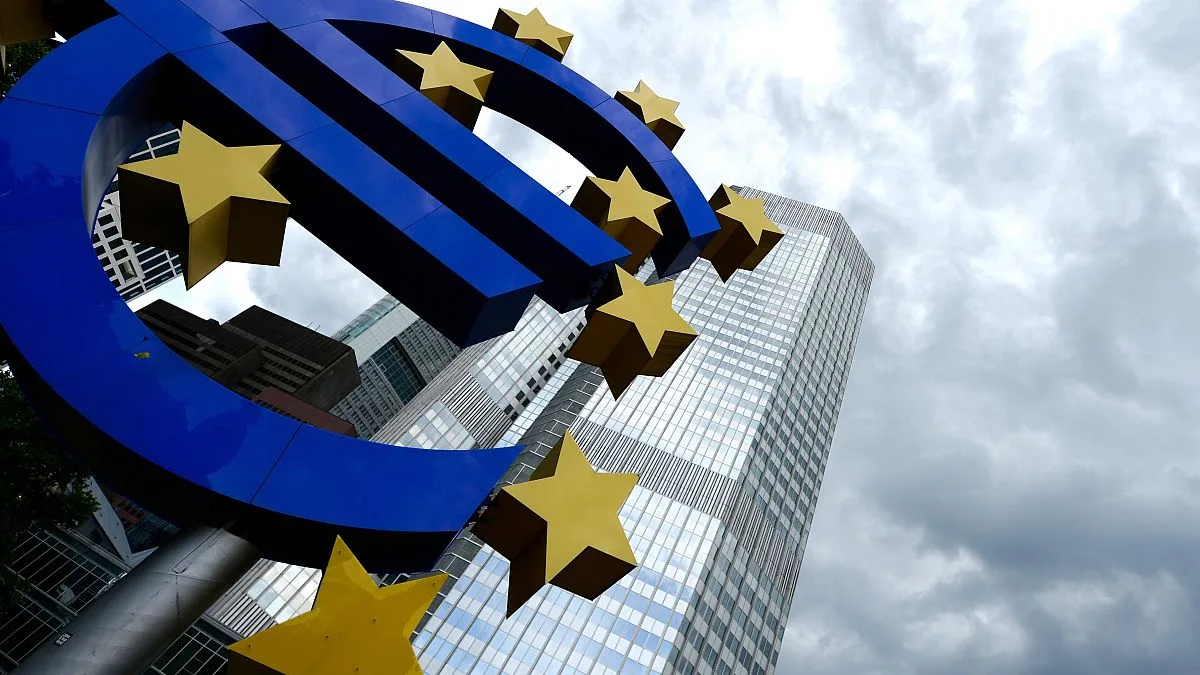Money markets are increasingly anticipating that the European Central Bank (ECB) may deepen its interest rate cuts in December due to disappointing economic indicators. However, analysts caution that the bank is likely to adopt a measured approach towards rate reductions, given the ongoing inflationary pressures.
Increased Expectations for ECB Rate Cuts Amid Weak Economic Data
Following the release of dismal business activity metrics, market participants are raising their expectations for a significant interest rate move by the European Central Bank (ECB). Recent data suggests a 50% probability that the ECB will reduce interest rates by half a percentage point in December. Nevertheless, opinions among ECB officials vary regarding the urgency of implementing a reduction of this magnitude.
Government Bond Yields Decline to Lowest Levels
In light of weak business activity readings from October, major European government bond yields experienced a notable decline. Typically, shifts in bond yields indicate market expectations regarding the ECB’s interest rate trajectory, particularly for short-term securities. For instance, the yield on 2-year German and French government bonds—especially sensitive to rate fluctuations—hit yearly lows before rebounding, reflecting the market’s increased bets on a more substantial rate cut from the central bank.
According to S&P Global’s preliminary estimates, the manufacturing Purchasing Manager Index (PMI) for both France and Germany has been contracting for over two years. While there has been a slight improvement in Germany, France’s services PMI is anticipated to revert to contraction after a temporary boost. This trend, combined with a significant reduction in headline inflation in September, has heightened the likelihood of the ECB announcing a more aggressive rate cut in December, following previous reductions in September and October—the first such moves in 13 years.
The annual inflation rate for the Eurozone plummeted to 1.8% in September, marking its lowest figure in three years and falling below the ECB’s 2% target. However, core Consumer Price Index (CPI) figures, which exclude volatile categories such as food and energy, remained relatively elevated at 2.7%. As such, the forthcoming consumer price index for October, scheduled for release next week, will be pivotal for market sentiment.
Market strategist Michael McCarthy from Moomoo Australia noted that eurozone inflation still poses “substantial upside risk.” He predicted that next week’s core inflation reading for October could rise to 2.8%, adding: “If the increase exceeds consensus, there could be a sharp adjustment in interest rate markets.”
Debate Among ECB Officials Regarding Rate Cuts
ECB officials are split on whether to proceed with a quarter-point or a half-point rate cut, although there’s a general belief that inflation will eventually revert to target levels. ECB President Christine Lagarde remarked to Bloomberg TV: “The pace will be determined based on backward- and forward-looking elements, using our three criteria and applying judgment.”
Some members of the Governing Council, like Mario Centeno from Portugal and François Villeroy de Galhau from France, argue that economic risks outweigh those associated with inflation. Conversely, a more hawkish faction, including Klaas Knot from the Netherlands and Pierre Wunsch from Belgium, contends that a 50 basis point cut would be premature unless economic conditions worsen significantly. The consensus among officials leans towards a gradual approach rather than abrupt changes.
Beyond inflation metrics, key European economies will unveil their third-quarter Gross Domestic Product (GDP) data next week, which will provide further insight into the region’s economic landscape. The International Monetary Fund (IMF) has revised its forecasts for the euro area’s economic growth down to 0.8% for 2024 and 1.2% for 2025, a reduction of 0.1% and 0.3% from its earlier estimates.
Research strategist Dilin Wu from Pepperstone expressed skepticism regarding the likelihood of a 50 basis point cut by the ECB in December, particularly after consecutive rate cuts. Nonetheless, she acknowledged the challenging economic backdrop, stating: “A 50 basis point cut would represent a significant shift and could potentially trigger greater market turmoil.”
Photo credit & article inspired by: Euronews



